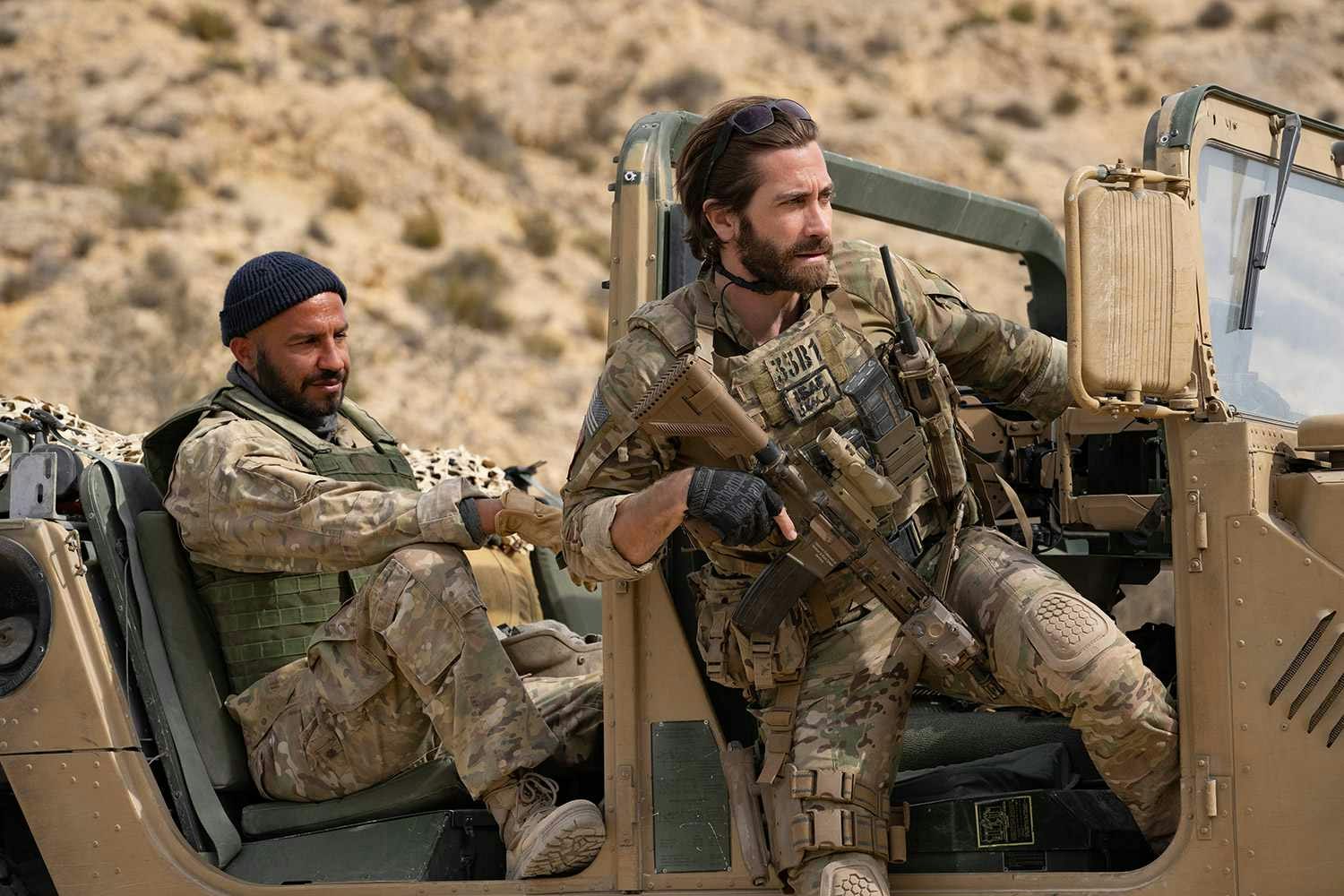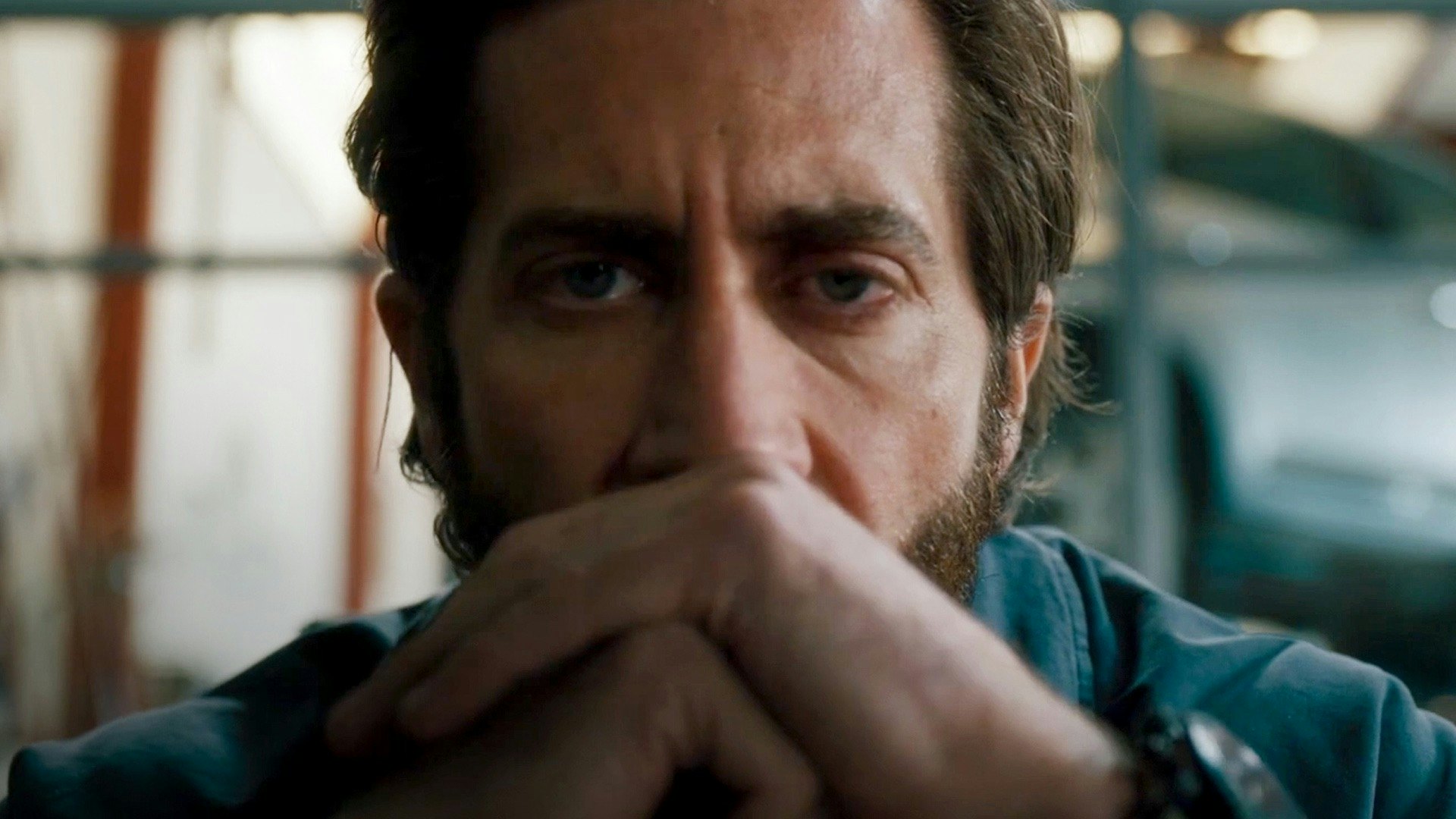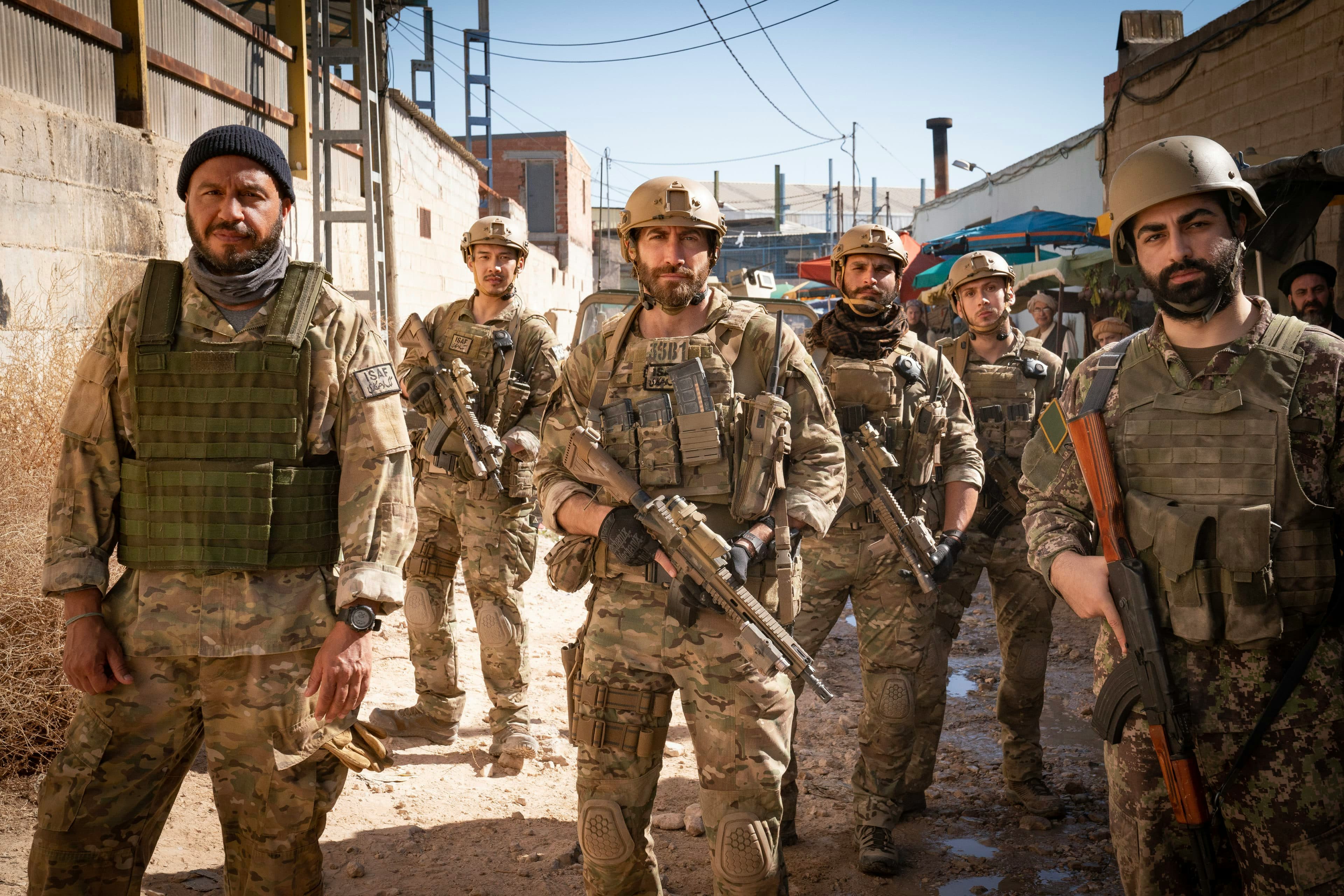
War films come in every variety under the sun, from epics (Lawrence of Arabia), to anti-war masterpieces (Apocalypse Now, All Quiet on the Western Front), to satires (Dr. Strangelove) or transgressive, action-heavy spectacles (Inglourious Basterds). At the end of the day, Guy Ritchie’s The Covenant isn’t any of those.
At its core, the Afghanistan War film is a simple tale of a man attempting to pay off a life debt by any means necessary. It’s an element contextualized by the continued reality that so many interpreters who risked their lives to aid the United States’ Afghanistan war efforts left behind. And while one may want a greater depth or improved structural balance towards that end, there’s virtue to a story with simple, clear-cut goals.
U.S. Army Sergeant John Kinley (Jake Gyllenhaal) and his unit are in the thick of the American war in Afghanistan, tasked with the unenviable goal of finding IUD production facilities. They’re joined by Ahmed (Dar Salim), a no-nonsense but skillful interpreter with an understandable axe to grind against the Taliban. With Ahmed’s deeper knowledge of regional alliances and history, their efforts finally begin to achieve real results. Their continued push leads to a major IUD facility, but the unit is ambushed and heavily outnumbered. John survives but is injured, and Ahmed transports him across Afghanistan with (at least) dozens of Taliban hot on their trail. When Sergeant Kinley makes it to his base, then home, he comes to find that Ahmed and his family are among the thousands of interpreters whom the U.S. government failed to relocate to the U.S. following their aid in the war effort … a fact that Kinley refuses to accept. If the government won’t help Ahmed, he’ll have to do it himself … at any cost necessary.
The leads at the film’s center are unsurprisingly good. Gyllenhaal is, of course, an actor with wide range, and he lands the movie’s more intense emotional moments. At the same time, much of the introduction to his character is a little stiff, a factor that makes some contextual sense but which makes it a little harder to buy into the dialogue. Once Gyllenhaal is actively engaging with Salim’s Ahmed, the duo’s awkward-to-trusted-comrade dynamic works. Upon Kinley’s return to the U.S., Gyllenhaal delivers a parade of memorable moments — a series of phone calls from Hell and his “there’s a hook in me” speech are particular standouts.

Dar Salim gives an excellent turn as Ahmed: he’s insubordinate but not belligerent, vengeance-driven but measured. He’s a character that suffers no fools, and it’s engaging to watch his growing mutual trust with Kinley. When it’s up to Ahmed to save the latter (and to be clear, it’s not from loyalty … he wants his family’s ticket out), Salim sells the hardship well — and there’s a lot of it. The rest of the film’s players ably serve their roles as well, with The Boys standout Antony Starr and Jonny Lee Miller adding charismatic oomph in their limited screentime.
As a whole, the script is laser-focused on the leads’ two journeys: Ahmed’s journey to save Sergeant Kinley and the latter’s efforts to pull Ahmed and family out of the region. It’s a smart focus, allowing the movie to escape the unfortunate political legacy of the War on Terror and a variety of tired tropes. Instead, the film spotlights two uncontroversial facts: that the only way to escape the feeling of a life-debt sometimes is to pay it off, and that the myriad interpreters the U.S. left stranded in Afghanistan deserve far better. There’s little depth in the film beyond that, but while some viewers may be left wanting a little deeper or more complex story, it’s nonetheless refreshing to have a tight war narrative with a simple but meaningful core.
It’s also worth noting that the film often boasts strong suspense sequences and well-executed action, but it also doesn’t glorify the violence: these soldiers are merely professionals set out to do a job. The film’s key limitation, however, is a rather important structural one. In the story there are two arduous journeys we follow, but the treatment of said journeys feels woefully unbalanced. Ahmed’s path to saving Kinley is arduous and compelling. When the latter is back in the States, the story also succeeds in showing how mind-numbingly difficult the process of getting these interpreters to the States has become. Kinley’s attempt to evacuate his former comrade, however, is woefully underserved in the final cut.

Admittedly, it’s good the film isn’t another three-hour war epic. But the comparable brevity of Ahmed’s rescue produces a feeling that it is far easier for him to infiltrate the country and get Ahmed out than it should. Dramatically, it gives the finale a feeling of diminished narrative weight, and thus a reduced payoff exactly when it should be at its peak. A greater showcase of this leg of the drama would have taken the film up another notch or two.
Guy Ritchie’s The Covenant has a lot going for it. The narrative is tight and consequential, the stakes have a strong emotional impact, and the performances are largely excellent (minus a few scenes that don’t hit the way they may intend). It’s a breezy, engaging watch. At the same time, there are regrettable issues with structure and pacing that undermine its impact in a few fundamentally important sequences. All in all, the film does still earn credit for centering an important issue with great emotional weight for its protagonist. It’s a lean story that gratefully never takes its eyes off the narrative prize.







